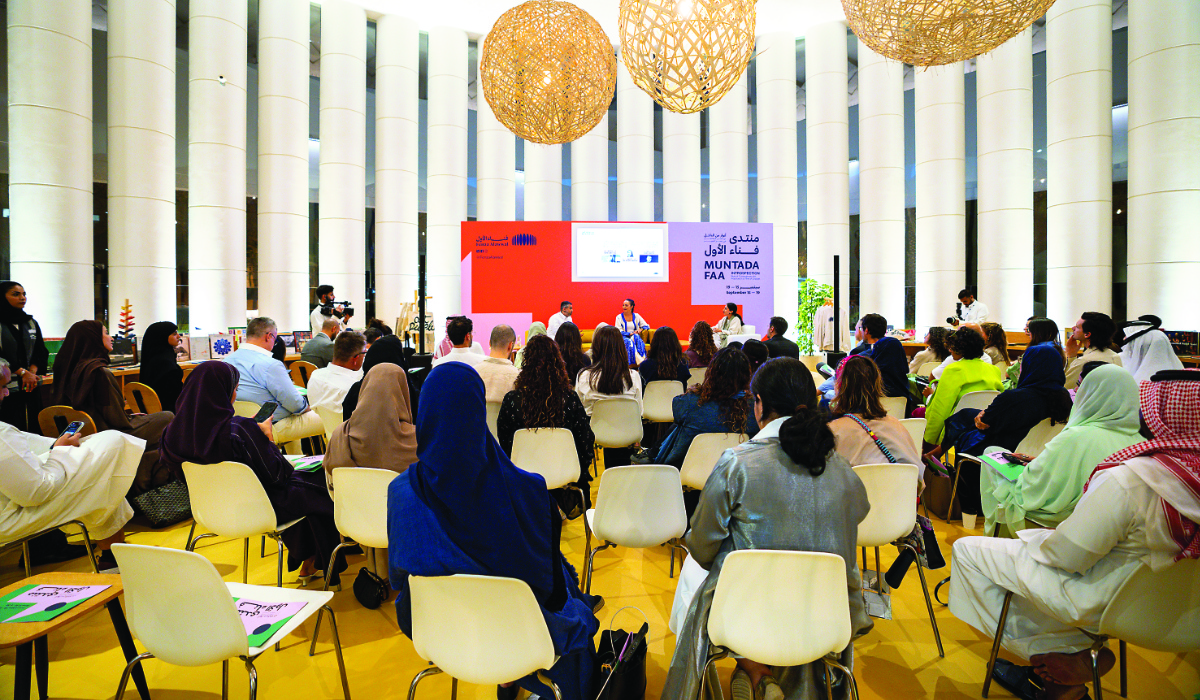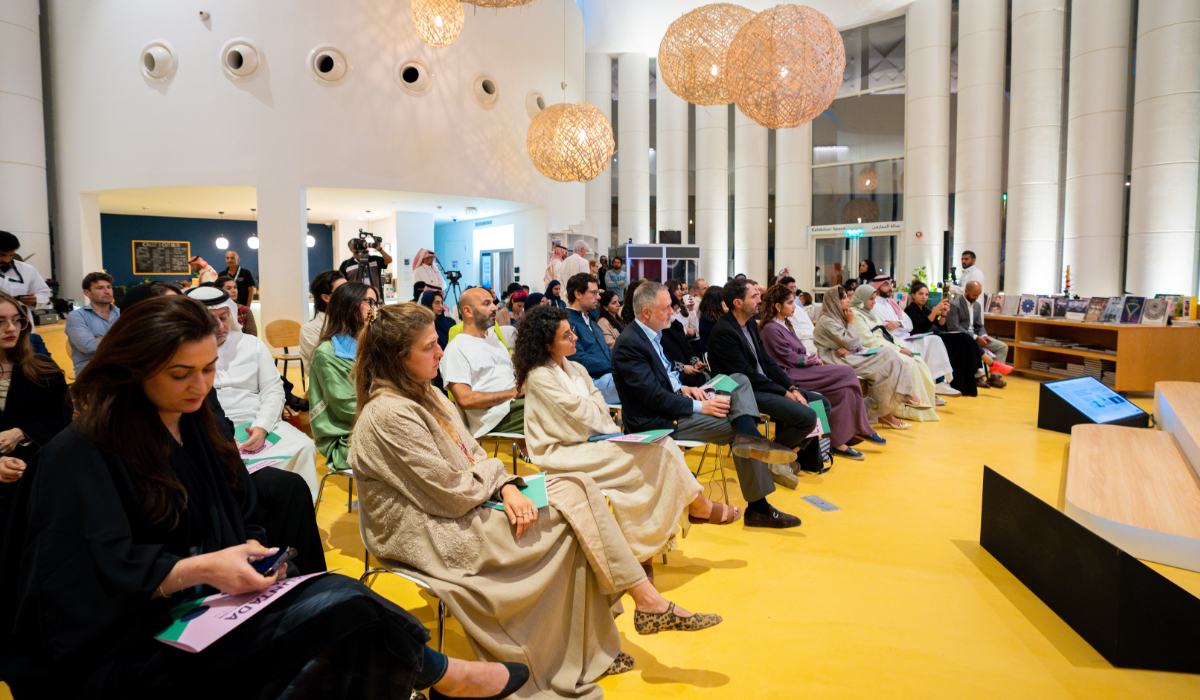RIYADH: Pakistani artist Zainab Anwar’s compelling work is marked by vibrant colors and surrealist portrayals of South Asian and Arab cultures, with a focus on tackling challenges facing women and girls in society.
Anwar, 24, was born in Pakistan and moved to Saudi Arabia when she was 8 years old. She spent her formative years in the capital, attending Manarat Riyadh International School. She left the Kingdom at 18 to attend university in Canada and has since returned.
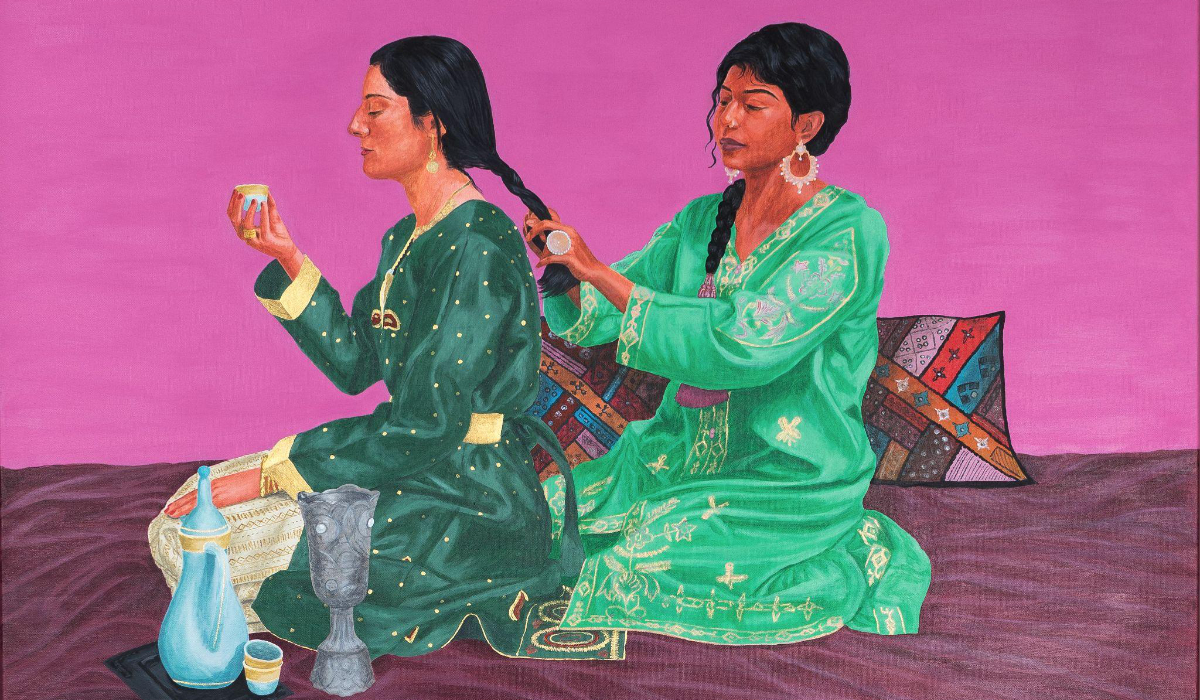
Riyadh-based Pakistani artist Zainab Anwar’s work is shaped by living in Saudi Arabia, with some works focusing on the challenges women and girls face in society. (Supplied/Adam Studio)
“I grew up here with people from different cultures. However, I often did not see families from different cultures interact with each other. In school, South Asians and Arabs interacted with each other but I did not see any media representation of this.
“I felt that our societies outside of school were completely separated. This led me to create cross-cultural work. To represent the experiences of South Asians in the Middle East.”
HIGHLIGHTS
• Zainab Anwar, 24, was born in Pakistan and moved to Saudi Arabia when she was 8 years old.
• She spent her formative years in the capital, attending Manarat Riyadh International School.
• Bright and colorful backdrops inspired by Pakistani truck art are Anwar’s artistic signature.
Anwar began her artistic journey by portraying Pakistani women in various settings.
“I later began drawing darker-skinned and hairy women because I felt these were characteristics that brown women were shamed for. I saw girls in school bully each other over such beauty standards, Arab and South Asian girls alike.”
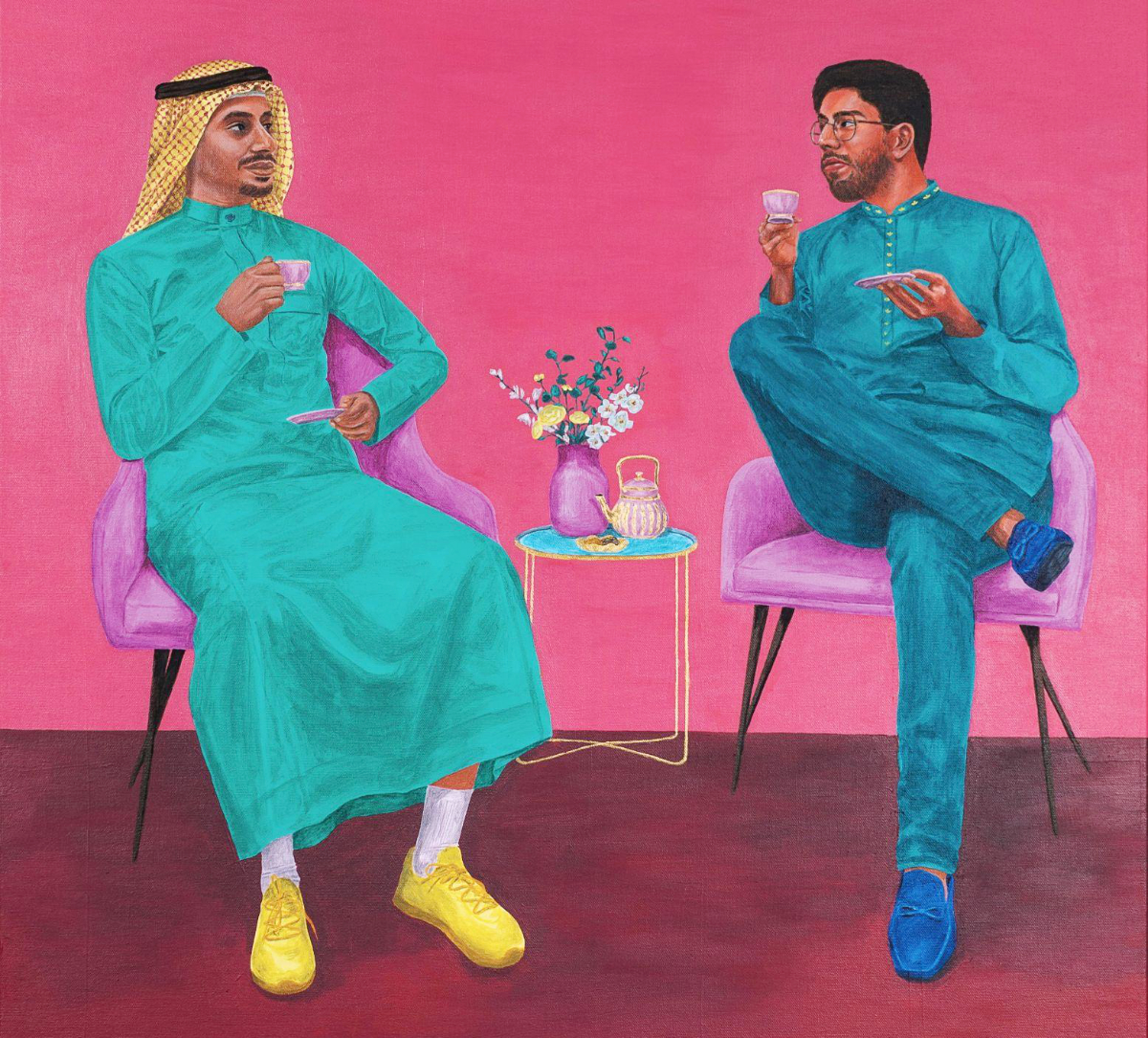
Riyadh-based Pakistani artist Zainab Anwar’s work is shaped by living in Saudi Arabia, with some works focusing on the challenges women and girls face in society. (Supplied/Adam Studio)
Art has been an outlet for her during times of dealing with mental health issues.
“Later on, I began using surrealist art to depict the difficult feelings and experiences I had with my depression and anxiety. Growing up with a mental health stigma, it took me many years to understand these emotions. And creating art on it has helped me cope with such feelings.”
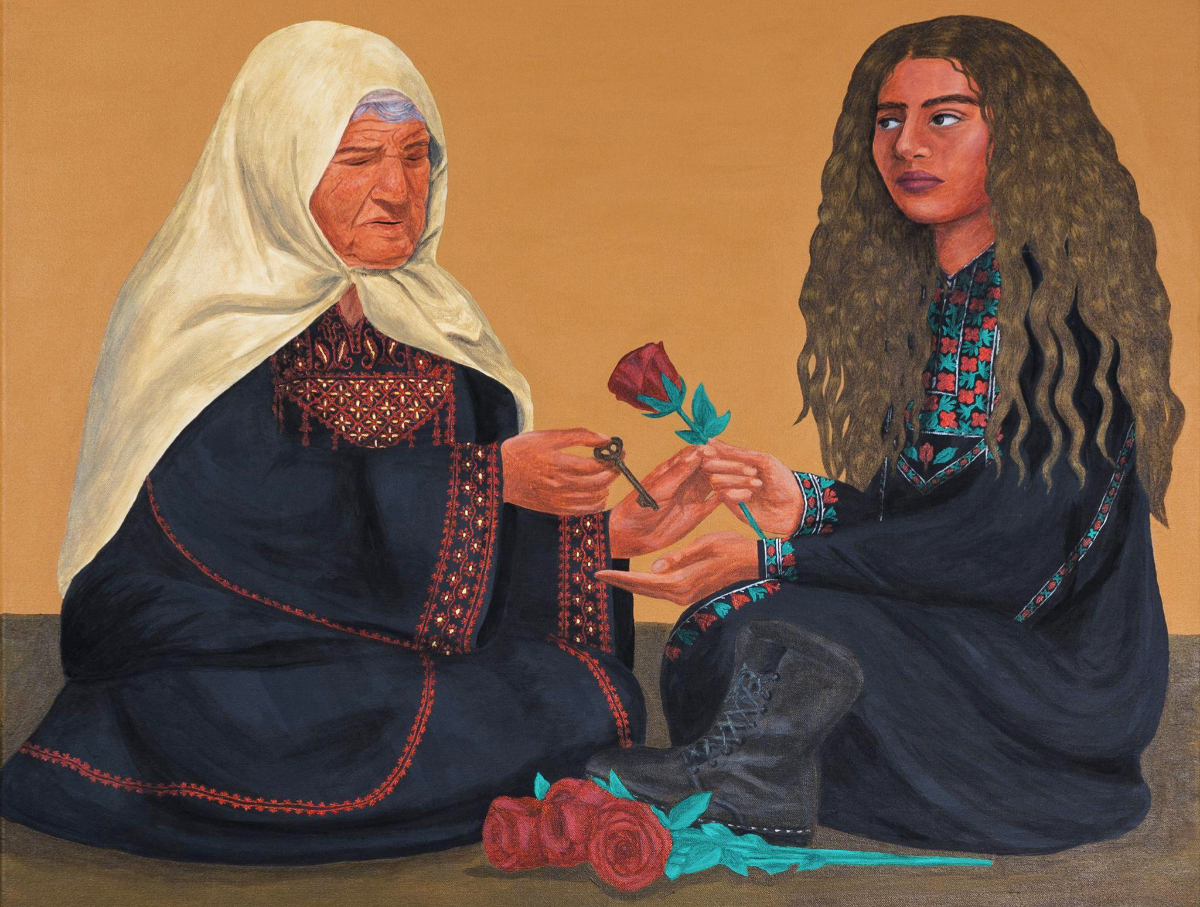
Riyadh-based Pakistani artist Zainab Anwar’s work is shaped by living in Saudi Arabia, with some works focusing on the challenges women and girls face in society. (Supplied/Adam Studio)
She added: “I believe that art can help bring light to difficult matters and also bring a sense of peace to people that suffer from such social issues and mental illness.
“I found that society has difficulty dealing with experiences all women and girls face, like sexual harassment and unrealistic beauty standards.”
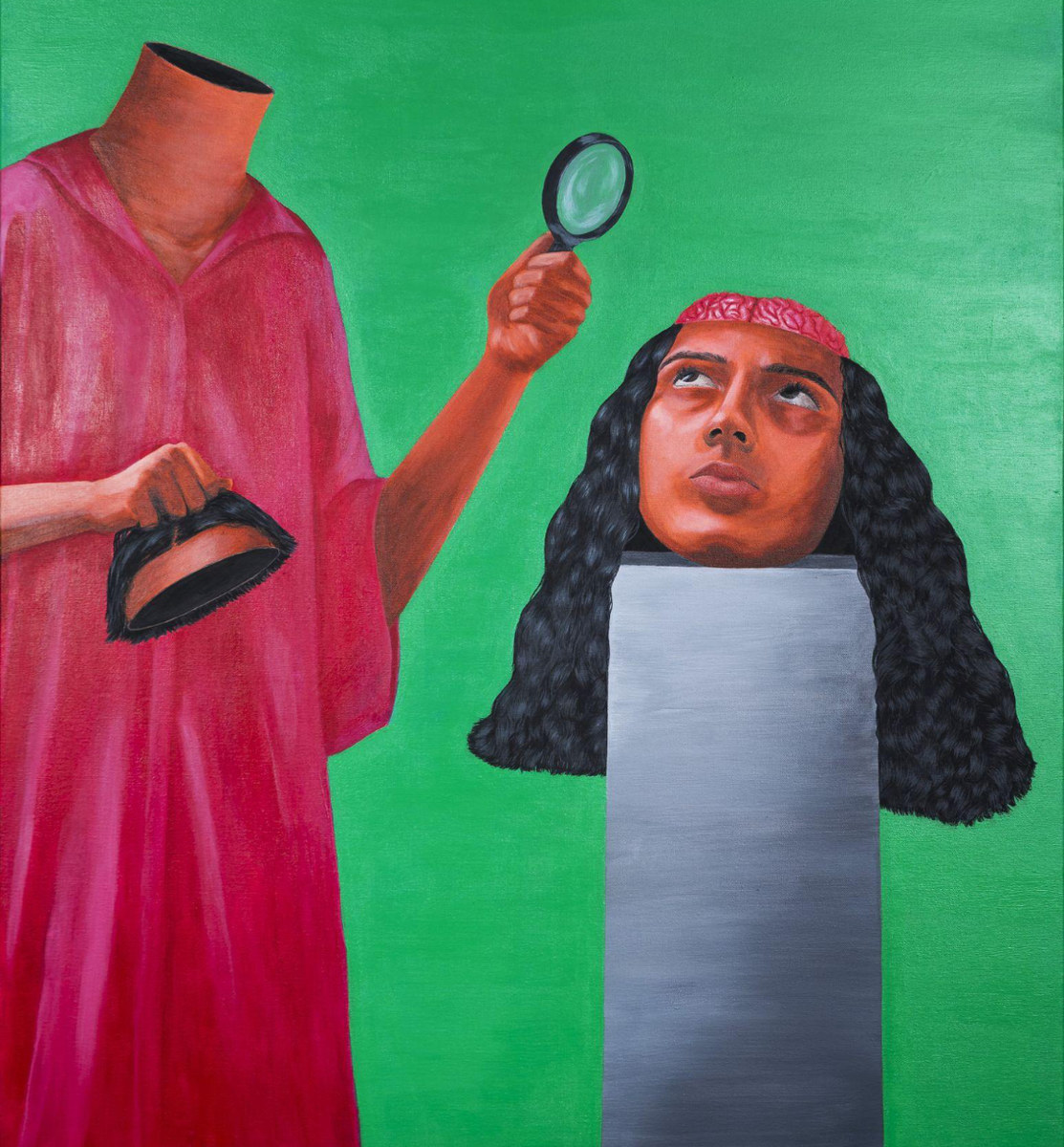
Riyadh-based Pakistani artist Zainab Anwar’s work is shaped by living in Saudi Arabia, with some works focusing on the challenges women and girls face in society. (Supplied/Adam Studio)
Bright and colorful backdrops are Anwar’s artistic signature. “The main source of inspiration for the colors I use in paintings is Pakistani culture,” she said.
“A form of art used by truck drivers in Pakistan is called truck art. Truck drivers adorn their trucks with bright, contrasting colors to draw attention to them. I was drawn to these trucks from a young age and I believe this has led me to use bright colors in my work.”
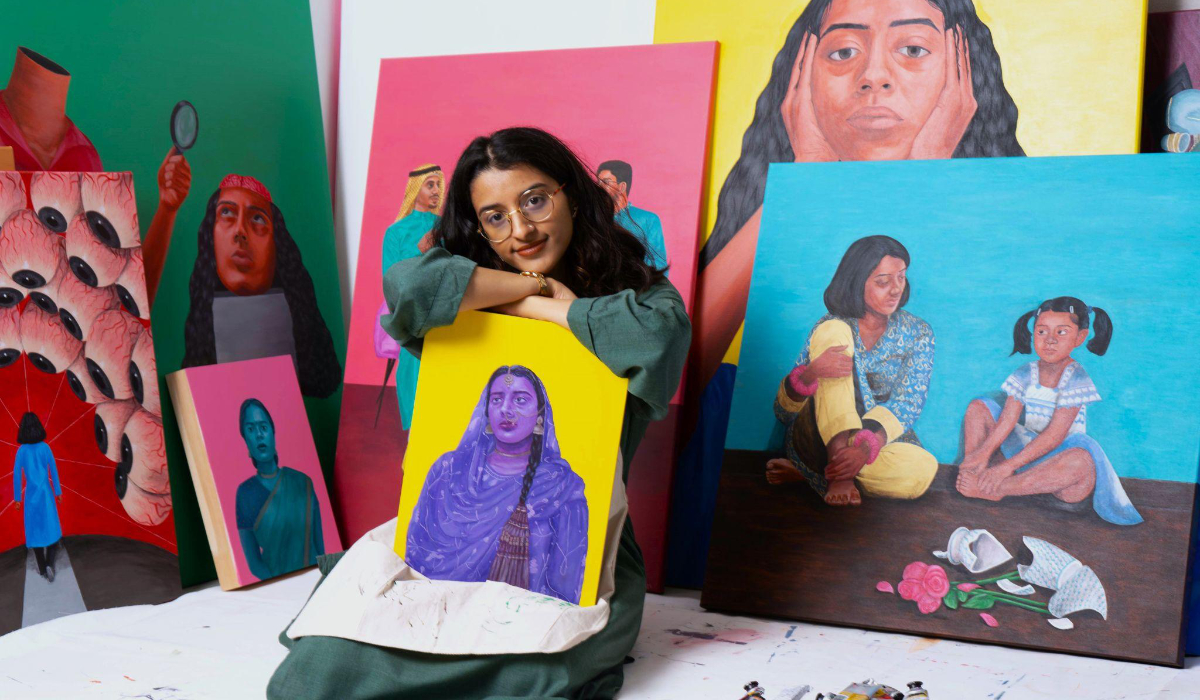
Riyadh-based Pakistani artist Zainab Anwar’s work is shaped by living in Saudi Arabia, with some works focusing on the challenges women and girls face in society. (Supplied/Adam Studio)
Anwar’s portfolio showcases an experimental use of different mediums including ink, pencil, photography, and traditional artforms such as embroidery. Her current preference is the use of acrylic paints for her work.
Although she portrays aspects of South Asian and Arab culture, Anwar says that women tend to relate to her art no matter where they are from. “They can understand the many universal experiences of being a woman that I depict in my work. People are also appreciative of cross-cultural work and see it as a reflection of the society we are in.”
Anwar says she attempts to capture the full gamut of human experience in her work, including joy and sorrow which are “important to society, for both the artist and the viewer.”








